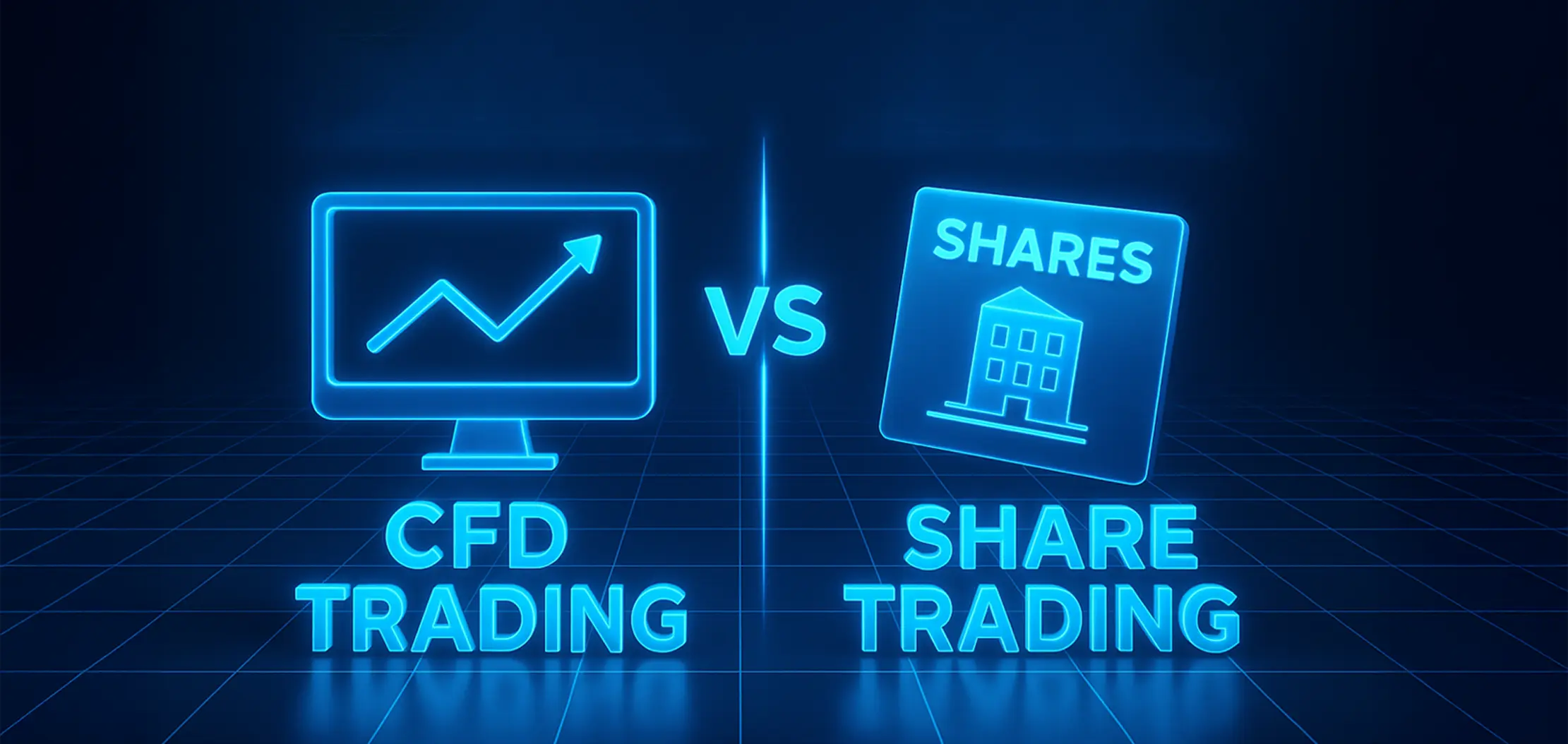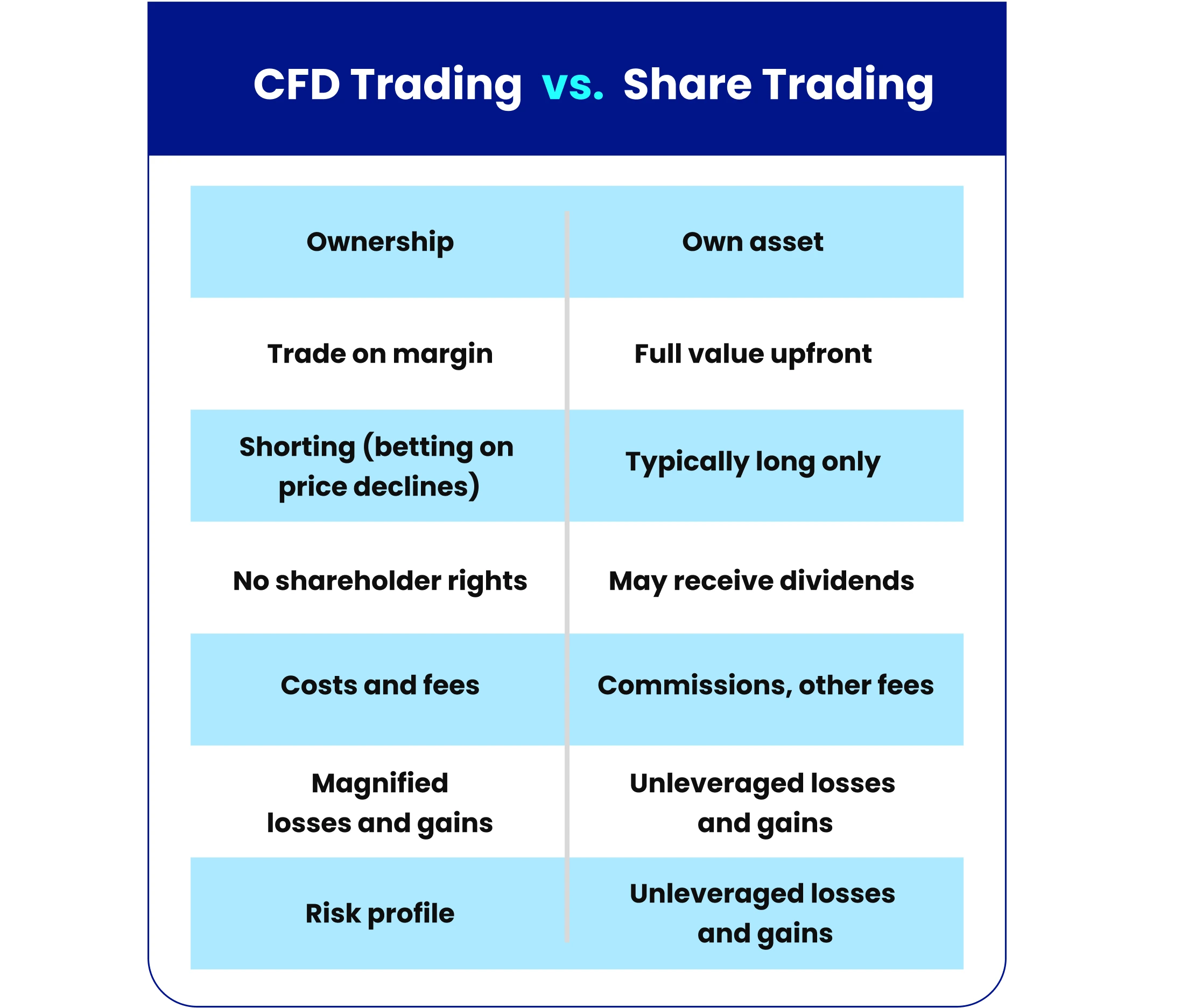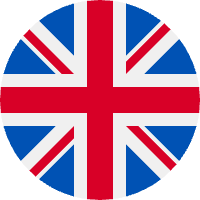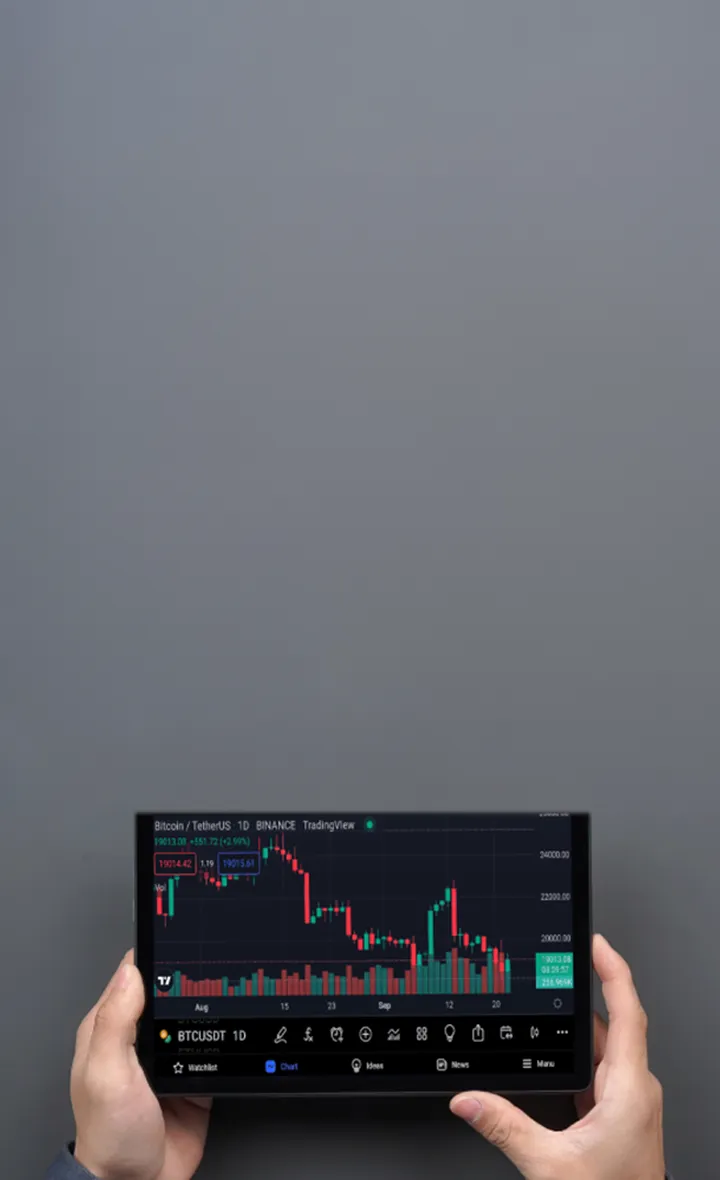What Are Shares?

Shares denote a small piece of ownership in a company. Major corporations may have millions or even billions of shares outstanding, which you can buy or sell on regulated markets. Owning a share affords you certain rights, depending on circumstances such as jurisdiction and the type of share you own, such as dividends.
The price of shares rises and falls based on supply and demand, as well as other factors, such as the company's financial performance, executive decisions or announcements, and macroeconomic factors.
What Are CFDs?

“CFD” stands for contract for difference. It is a financial derivative meant to track the price movement of an underlying market. CFD share trading involves contracts with a broker to exchange the difference in price of the underlying share from the moment you open the position to the moment you close it. Therefore, you buy the contract, not the actual share.
Key Differences of CFD Trading vs. Share Trading

Ownership
When you buy shares, you own the asset and may receive dividends and other privileges as a shareholder. With CFDs, you do not own the underlying company or asset; you are only exposed to the price movement.
Leverage and Margin
With share trading, you pay the full value upfront and don’t use margin. The only time you do is if you use special margin loans. With CFD trading, you often do trade on margin. This is when you would only need to deposit a fraction of the full position. CFD trading also allows you to use leverage.
Going Long or Going Short
When you buy a share directly, you are going long and can only profit if the price increases. However, CFDs allow you the ability to take a short position (or going short) and can profit if the underlying share drops in price. This is because you don’t own the asset, and the contract instrument allows you to take both long and short positions.
Dividends and Other Shareholder Rights
If you own the actual share, you may receive dividends or benefits from corporate actions. With CFDs, you might get a credit or debit for dividends on whether you are long or short, but you don’t enjoy shareholder rights in the same way.
Costs and Fees
Fees vary greatly between brokers and jurisdictions. With share trading, the costs may include brokers’ commissions, exchange fees, or stamp duty (depending on the region). With CFD shares, you may have to pay spreads, commissions, and overnight financing (if you hold a leveraged position overnight). It is important to check all the costs before trading.
Risk Profile
Because CFDs are leveraged, the potential losses and gains are magnified compared to share trading. CFDs amplify profits and losses. Therefore, CFDs are usually a way more riskier trading option than share trading.
Holding Period and Strategy
CFD share trading is often better suited to shorter-term, speculative trading, given the cost structure (including overnight charges) and ease of going short. Share trading is often more aligned with longer-term investing or ownership holds.

Is CFD Trading A Good Option for Beginners?
There are several benefits that a beginner trader could take advantage of with CFD trading. These advantages might also apply to share trading, but perhaps at a much lower magnitude.
One advantage is that you have access to profit from the share market, in a way, with smaller capital. This is due to margin, so you can take a position much larger than your deposit would otherwise permit, though this comes with increased risk.
Another benefit is that you can profit in CFD trading in both rising and falling markets. This is because with CFD trading, you can assume the short position.
Besides that, CFD trading also gives you the ability for quick entries and exits. CFD trading also has tighter spreads. You can also use leverage while trading with CFDs. This shows that CFDs are more flexible to trade with in comparison to share trading.
Choosing Between CFD Trading and Share Trading
There are several factors to consider when you want to choose what type of trading you wish to do between the two types of trading discussed in this article. A trader has to understand what goals they wish to achieve when they trade. If the trader wishes to be actively trading day in and day out, then perhaps CFD trading is better suited to them. However, perhaps if time constraints are an issue or a trader wishes to streamline their trading activity, share trading might be more suitable.
Risk management is also something that a trader has to consider. Due to CFDs involving leverage, you must use stop-losses, manage position size, and only trade capital you can afford to lose. These are all integrated with choosing the right type of broker to trade with. A trader should always check if the broker is regulated for the type of trading they wish to be involved with.
Start Your Trading Journey with TMGM

If you feel like you are ready to begin trading, TMGM is the perfect trading broker for you. TMGM has lightning-fast execution and competitive spreads, and you can start with a demo account first to practice before diving into live trading.










